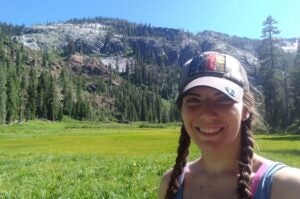 Bio:
Bio:
Despite a lifelong interest in animals fostered by family pets and nature shows, my interest in studying wildlife as a profession did not come about until pursuing my BS in Biology at George Mason University in Virginia. During my time there, I was able to study megafauna conservation in Kenya, intern at the Smithsonian Conservation Biology Institute to explore the impacts of human activity on wildlife on protected areas, and complete a thesis studying the effects of conservation actions on recovery of ESA-listed species in the US. Afterwards I aimed to gain experience working on as many diverse projects as I could. I worked for USGS on the North American Breeding Bird Survey, monitored sea turtles, shorebirds, and other wildlife for USFWS at Alligator River and Pea Island National Wildlife Refuges, and studied the interactions of Florida Panthers and White-tailed Deer on Florida Panther National Wildlife Refuge and Big Cypress National Preserve, just to name a few.
Current Research:
I am a Ph.D. Candidate in the MECU interested in using noninvasive methods to monitor wildlife populations for the purpose of informing and improving management practices. My current research utilizes fecal DNA and camera trapping to study the population structure and connectivity of Black-tailed Deer in the North Coast range of California. I am also interested in how trends in large ungulate populations affect predators, so I am using dietary metabarcoding to examine resource use by common fawn predators.
